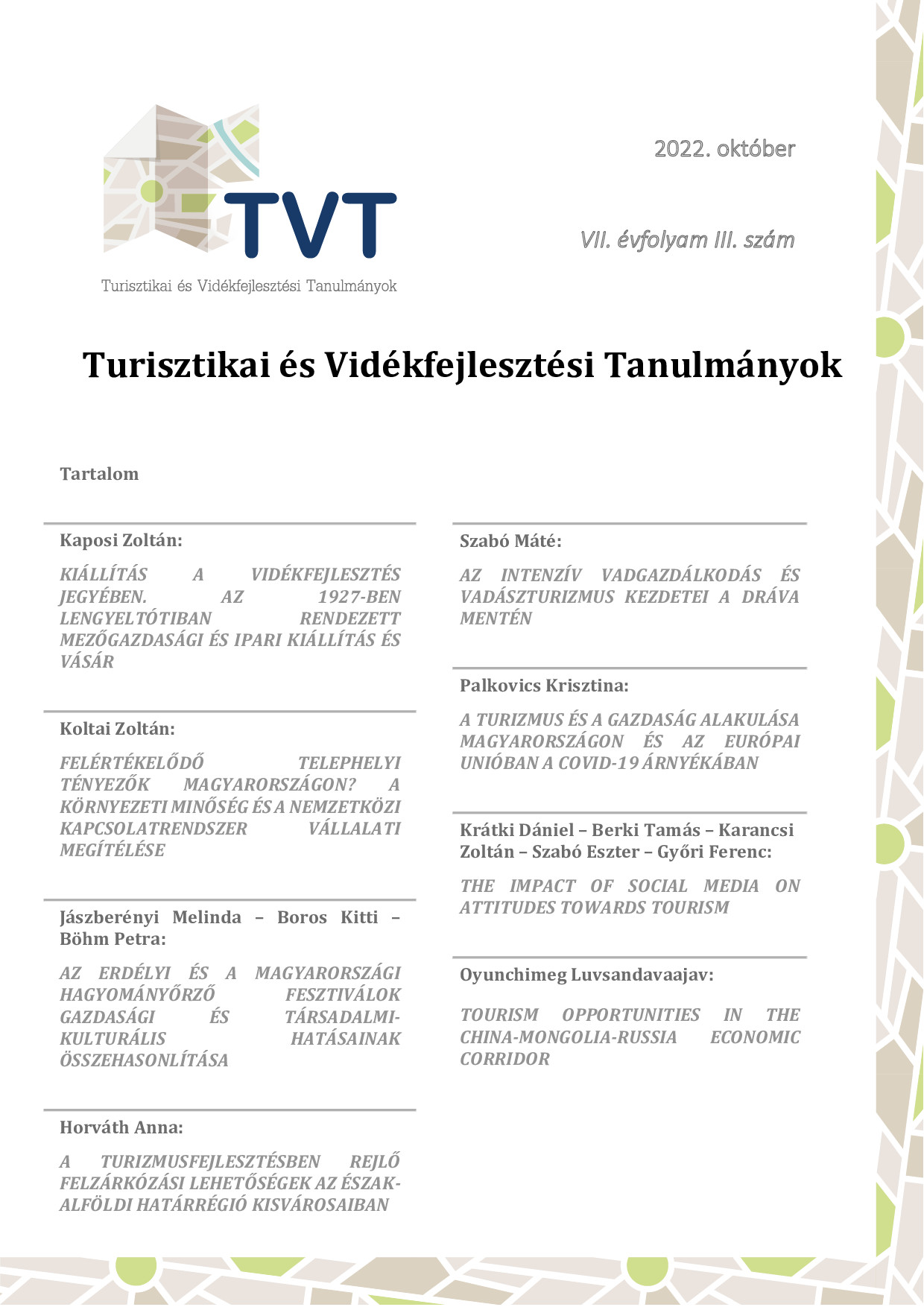Kiállítás a vidékfejlesztés jegyében. Az 1927-ben Lengyeltótiban rendezett mezőgazdasági és ipari kiállítás és vásár
DOI:
https://doi.org/10.15170/TVT.2022.07.03.01Kulcsszavak:
mezőgazdaság, nagybirtok, fejlődés, kiállítás, piacAbsztrakt
Magyarország gazdasági rendszerében a mezőgazdaság hosszú időn át meghatározó ágazat volt. Bár a 19. század közepétől gyors iparosodás zajlott le, de ez az ország agrárjellegén alig tudott változtatni, s a trianoni békeszerződéssel elcsatolt területek miatt még nőtt is a mezőgazdaság szerepe. Közismert ugyanakkor, hogy a világpiaci túltermelés és más okok miatt az 1920-as években a mezőgazdaságra rossz évek jöttek. A tanulmány Somogy megyével, egy elmaradott agrártérséggel foglalkozik. E kor fontos kérdése volt, hogy a kis- és középbirtokosok termelését hogyan lehet fejleszteni. E gondolat élére állt egy évtizedes tradíciókkal rendelkező szervezet, a Somogyvármegyei Gazdasági Egyesület. Az egyesület 1926–1929 között négy mezőgazdasági kiállítást és vásárt szervezett. Vizsgálatom az 1927-ben, Észak-Somogyban, Lengyeltótiban megrendezett kiállítás létrejöttét, lefolyását és következményeit mutatja be. A gróf Zichy Béla uradalmában tartott rendezvényen a termékbemutatók mellett versenyekre és jelentős mennyiségű árucserére is sor került. A minőségi termékeket az uradalmak mutatták be, de fontos volt, hogy a kiállítók többsége a Lengyeltóti járás területén lévő településekről érkezett. A kétnapos kiállításon mintegy 700 kiállító vett részt, s mintegy 10 ezer látogató tekintette meg. A rendezvény néhány napra a megyei és a regionális sajtó meghatározó témájává nőtte ki magát, ráirányítva a figyelmet a hazai agrárium fejlesztésének szükségességére, lehetséges irányaira.


